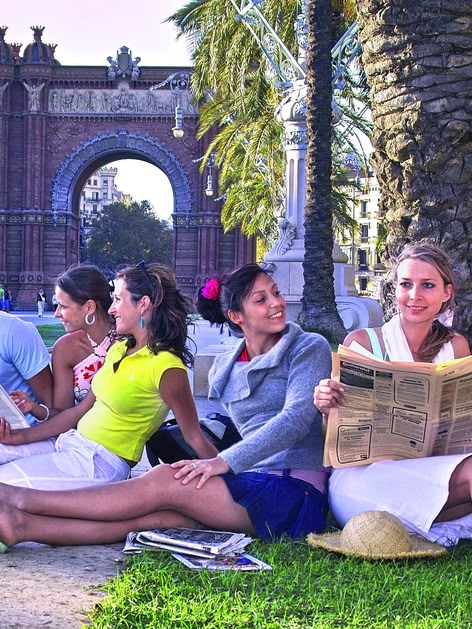Most Popular Languages to learn
Teenager Camps and Summer Programs
Immerse yourself in foreign languages!
We specialize in creating tailor-made programs for groups and individuals across all age ranges, including teenagers (13+), adults (18+), and those 50 and older. Our diverse offerings include study abroad opportunities, language immersion, university and college pathway programs, au pair experiences, internships, volunteer programs, adventure travel packages, as well as locally and faculty-led cultural trips.
Every year, we help around 55,000 students from more than 90 countries and 60 different cultural backgrounds explore new horizons. If you are looking for summer camps for teens or fun camps, you are at the right place!
Feel free to explore our website or reach out to us directly to start your own unique and inspiring learning journey. Discover a vibrant and engaging way of life through our wide range of programs and services!
Our Most Popular Languages!
Juniors Programme
With Teenager Camps, our younger language students can have unforgettable and valuable experiences abroad that will last a lifetime. The Juniors programme is specifically tailored to the unique needs of young travelers, ensuring a safe and enriching language study experience. To provide both our young language students and their parents with a stress-free journey, we are committed to addressing all concerns promptly and offering professional assistance throughout the trip.
Whether learning English, German, or another language, our Junior programme ensures a memorable and effective language immersion abroad.
Supervision
Throughout the trip, learners are accompanied by our "Teamers"-specially trained young adults aged 20-30 from across Europe and America. These Teamers, who communicate exclusively in the target language, oversee groups of about 15 students. They manage guided tours, activities, and free time, while also staying with students at the residence. Teamers are responsible for organizing the leisure program and offer full support to students aged 18-20, encouraging participation in activities.
Responsibilities:
- Group Leader Meetings: Held twice daily to plan and address any issues.
- Supervision: Teamers provide 24/7 supervision, assistance, and entertainment.
- Rules and Regulations: Explained upon arrival to ensure student safety and well-being.
- Identification: Teamers wear Teenager Camps T-shirts for easy identification.
- Problem Resolution: Teamers handle issues promptly, recording them on a complaint form.
- Language Practice: English is spoken at all times to enhance language fluency.
- Excursions: Fully supervised with first-aid kits and emergency phones.
This ensures a safe, immersive, and enjoyable language learning experience abroad.










